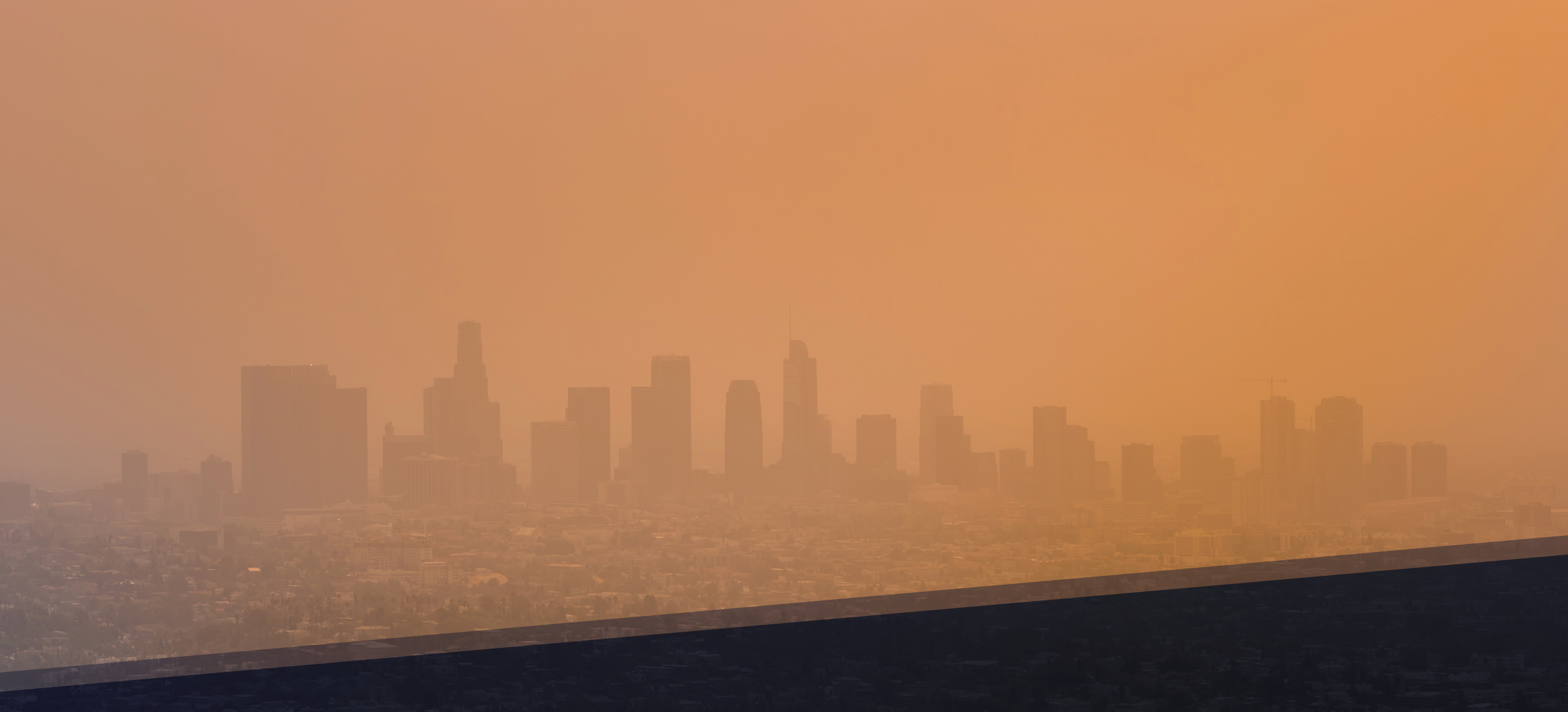Managing IAQ in Commercial Building During Wildfire Season
Topic: 2023 Central Canada Wildfires
The 2023 wildfire season is here and has already had a devastating impact across central Canada. As hazy and dangerous fumes make their way south across the US border, most of the Northeast coast is experiencing serious air quality issues that are affecting millions of people. And, because smoke is made up of a complex mixture of gasses and fine particulate matter, it is highly inhalable and can cause respiratory and cardiovascular health effects.
But, when a smoke event occurs, it can take days to weeks for air quality to improve. If not properly addressed, smoke can get inside of buildings and negatively impact indoor air quality (IAQ). Building owners and facility managers need to know the best practices for reducing exposure to smoke inside offices, schools, and housing facilities.
Facts about IAQ
Outdoor air, including the fine particles from wildfire smoke, can enter a building in a few ways, including:
- Natural Ventilation: Open windows and doors
- Mechanical Ventilation: Bathroom fans, kitchen fans, and HVAC systems with fresh air intake
- Infiltration: Openings, joints, cracks
When smoke events occur, local and state health departments may issue air quality alerts notifications when specific actions are needed to protect the public. Building managers should use these notifications to know when to initiate mitigation measures in their smoke readiness plan, which should include these steps:
1. Evaluate the HVAC Systems
To minimize occupant exposures and health impacts from smoke during wildfire events, facilities should first address any issues with their existing HVAC systems. In buildings where the HVAC system uses air-handling units that bring outside air into buildings or recirculate indoor air, facility owners and managers should follow a planning framework, like the guidelines set by the American Society of Heating, Refrigerating, and Air Conditioning Engineers (ASHRAE). This includes:
- Performing maintenance on HVAC
- Upgrading filters
- Optimize system airflows
- Adding supplemental filtration
- Limiting areas for smoke intrusion
- Adding the ability to monitor particulate matter
- Assessing how to create cleaner air
2. Stock up on portable air scrubbers
Additionally, those in areas prone to fires may consider purchasing equipment to improve IAQ during the duration of a smoke event. Portable air scrubbers, like our PRED750, are self-contained air filtration devices that can be used alone or with central air filtration to effectively remove harmful particles from the air.The portable air scrubber should be equipped with a high-efficiency HEPA filter and be the right size for the room. It’s important to secure these crucial devices before a fire occurs in order to act quickly during a smoke event. In the event of emergencies, it’s important to find an air scrubber supplier that has the ability to ship orders as quickly as possible.
3. Choose the right filter
Some air scrubbers are compatible with activated carbon filters.These filters are available for all of Abatement Technologies’ HEPA-filtered equipment, including the PRED750 mentioned above. Activated carbon is a unique material that is often used to remove volatile organic compounds (VOCs), odor, and other pollutants from the air, making it the optimal solution for smoke filtration. The benefits of activated carbon filters include their ability to adsorb a variety of vapor contaminants, organic molecules (especially solvents), and chemicals, as well as their large capacity to catalytically destroy ozone, a major component of smog.
In addition to smoke, Abatement Technologies’ portable air scrubbers and carbon filters have been used to filter out a number of odors from buildings including chemicals, cleaning solvents, mildew, mold, and biohazards.
Want to learn more about how Abatement Technologies can help protect your building during wildfire smoke events? Get in touch with one of our Aire Guardian experts.

